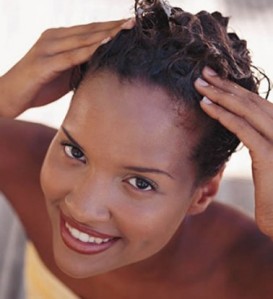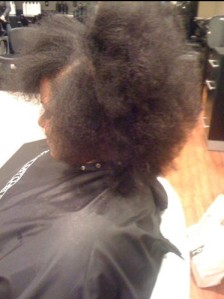
After months of controversy, the F.D.A. found that the miracle hair relaxer contains an alarming amount of a potential carcinogen.
Craving perfectly straight, sleek hair? It may be time to go old school & pick up the flat iron.
Brazilian Blowout—one of the popular versions of the Brazilian keratin straightening treatments currently offered at salons—has just been confirmed by the U.S. Food and Drug Administration (F.D.A.) to contain “dangerous levels” of formaldehyde, in spite of its label claim to be “Formaldehyde Free.” Formaldehyde is a carcinogen, which means it can cause cancer. Brazilian Blowout labels say the products “contain no formaldehyde,” as opposed to being “formaldehyde-free,” which the labels previously claimed. The products do contain methylene glycol — a liquid form of the chemical that emits formaldehyde gas when heated.
“Brazilian Blowout is misbranded because its label and labeling (including instructions for use) makes misleading statements regarding the product’s ingredients and fails to reveal material facts with respect to consequences that may result from the use of the product” wrote Michael W. Roosevelt, acting director of the Center for Food Safety and Applied Nutrition’s Office of Compliance.
“The bottom line is that formaldehyde can be released from hair smoothing products that list any of these names on the label and workers can breathe it in or absorb it through their skin,” the Occupational Health and Safety Administration warned in April 2011. “Workers can be exposed to formaldehyde during the entire hair straightening process, especially when heat is applied,” during blow-drying or flat ironing, for example — key steps in the blowout process.
“We know that lawsuits are pending, and will likely carry on for some time. But now, perhaps, stylists still using the product will finally recognize what the smoothing solution contains, and the importance of preventing exposure,” reads a Center for Research on Occupational and Environmental Toxicology statement on the FDA warning letter.
The Brazilian Blowout is one of many keratin-based smoothing treatments used by women of all ethnicities & hair types. The treatments range in price from $350 to $600 and promise shiny, frizz-free hair for up to four months. The FDA told the company it has until Sept. 12 to comply with the agency’s directive.
Have you used Brazilian Blowout treatments? Did you experience any negative side effects?










